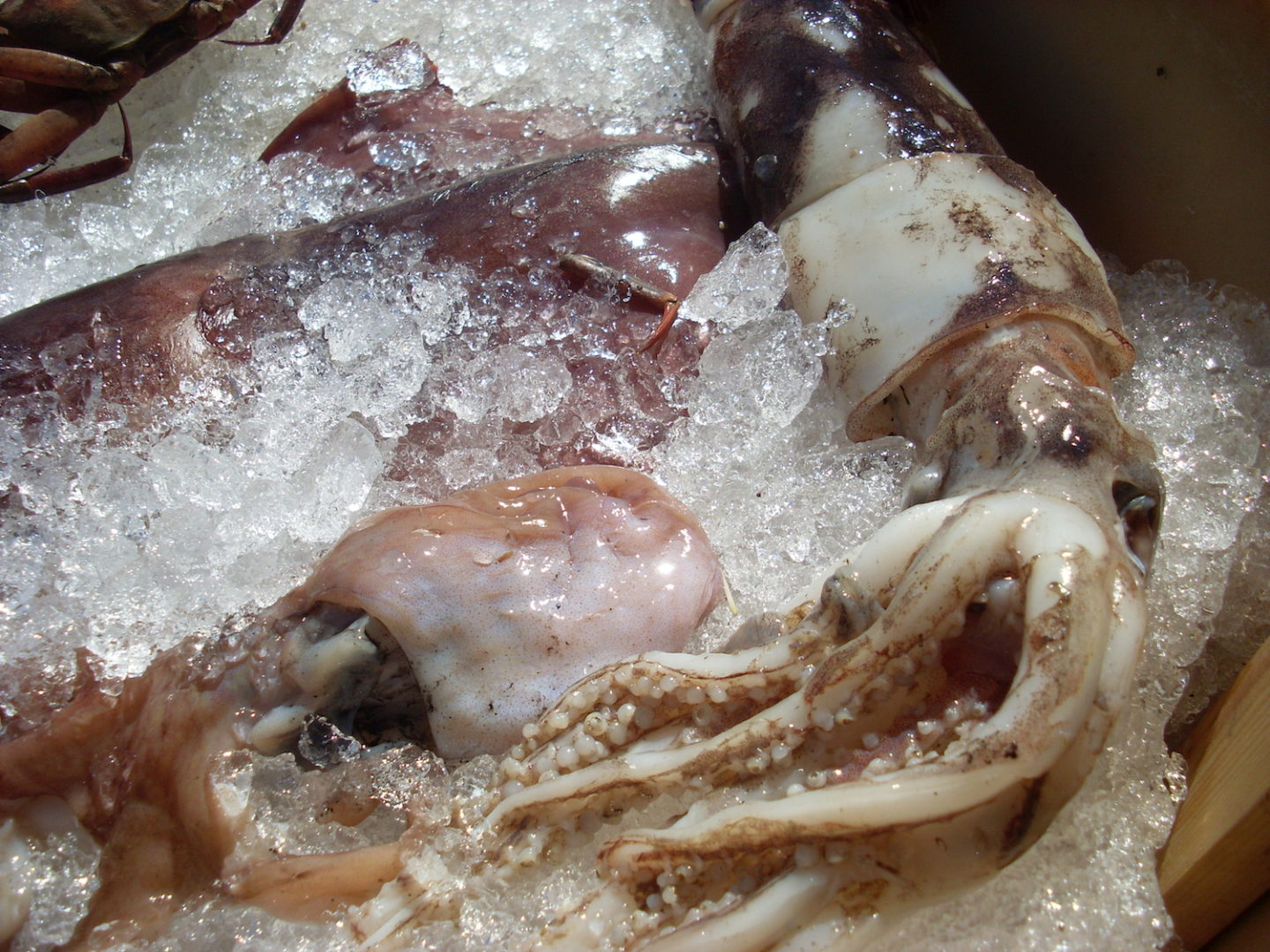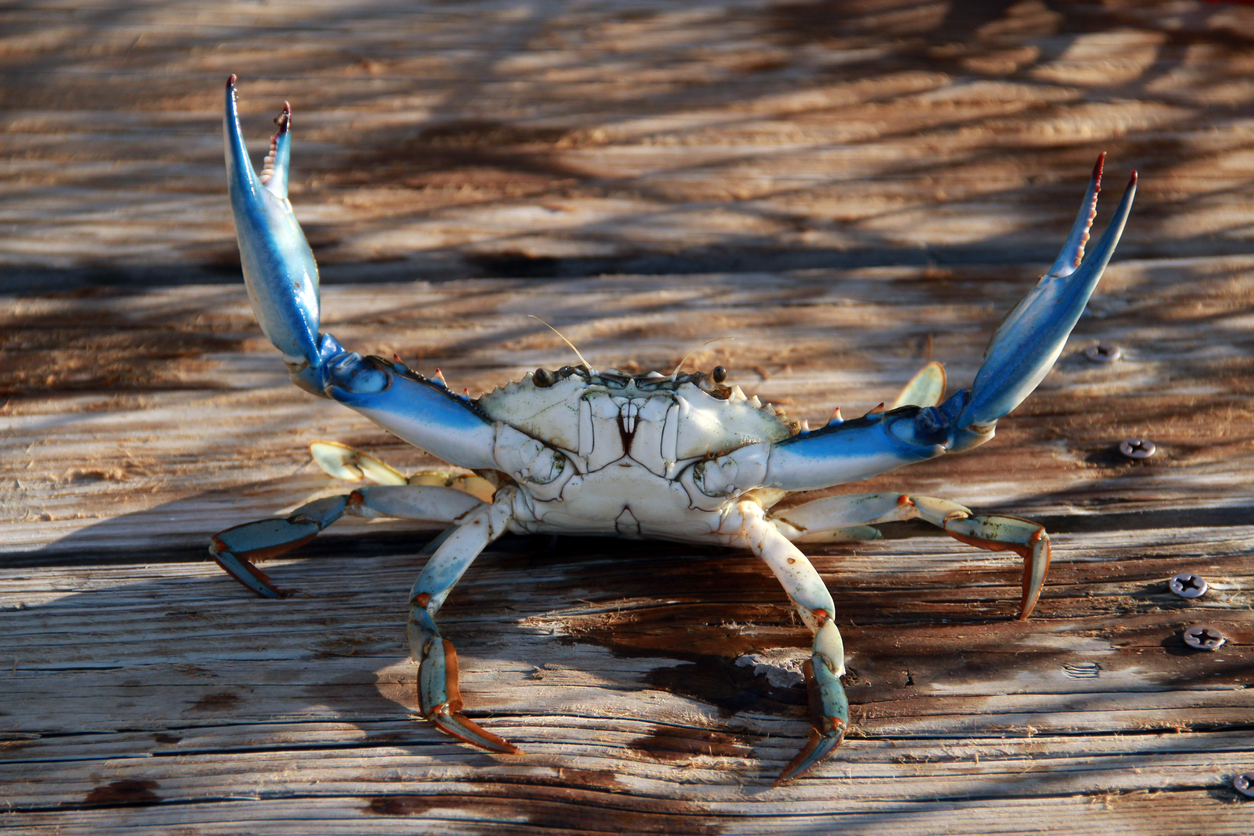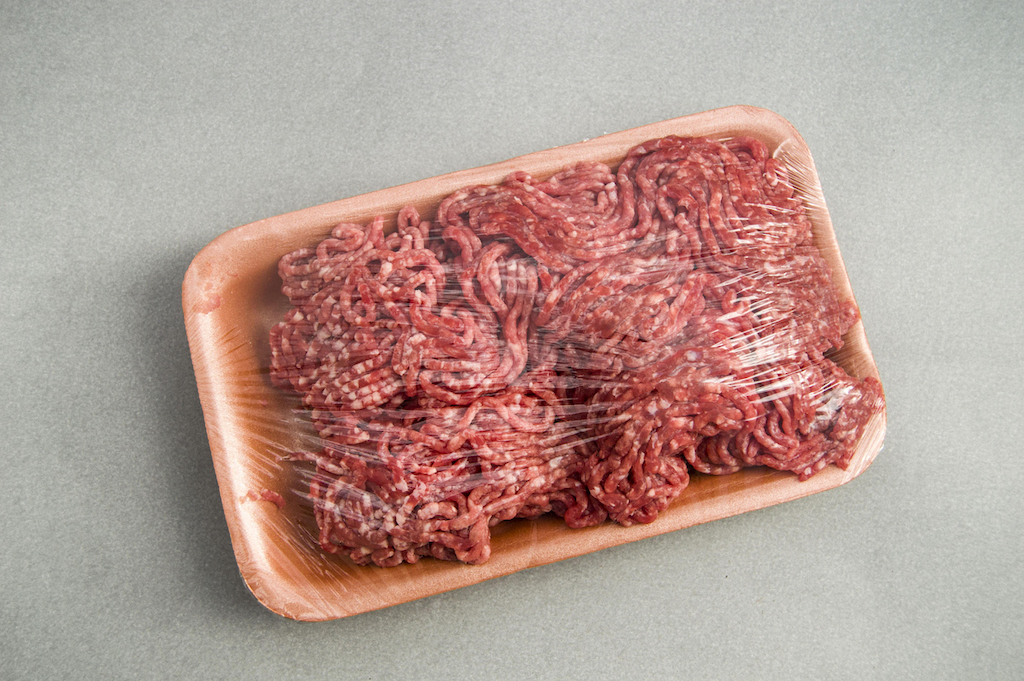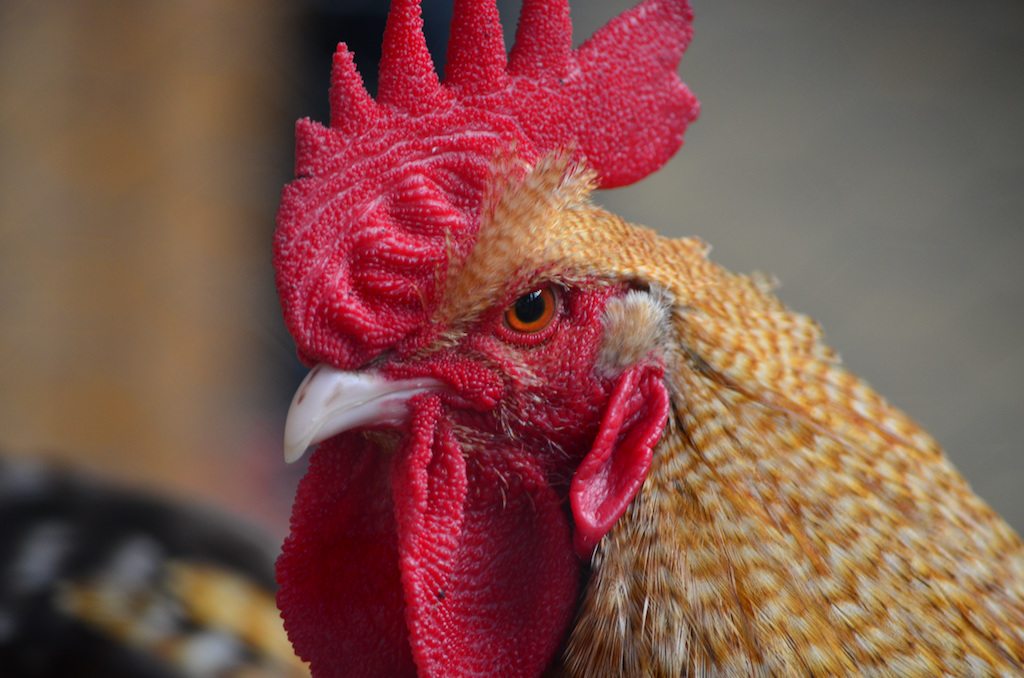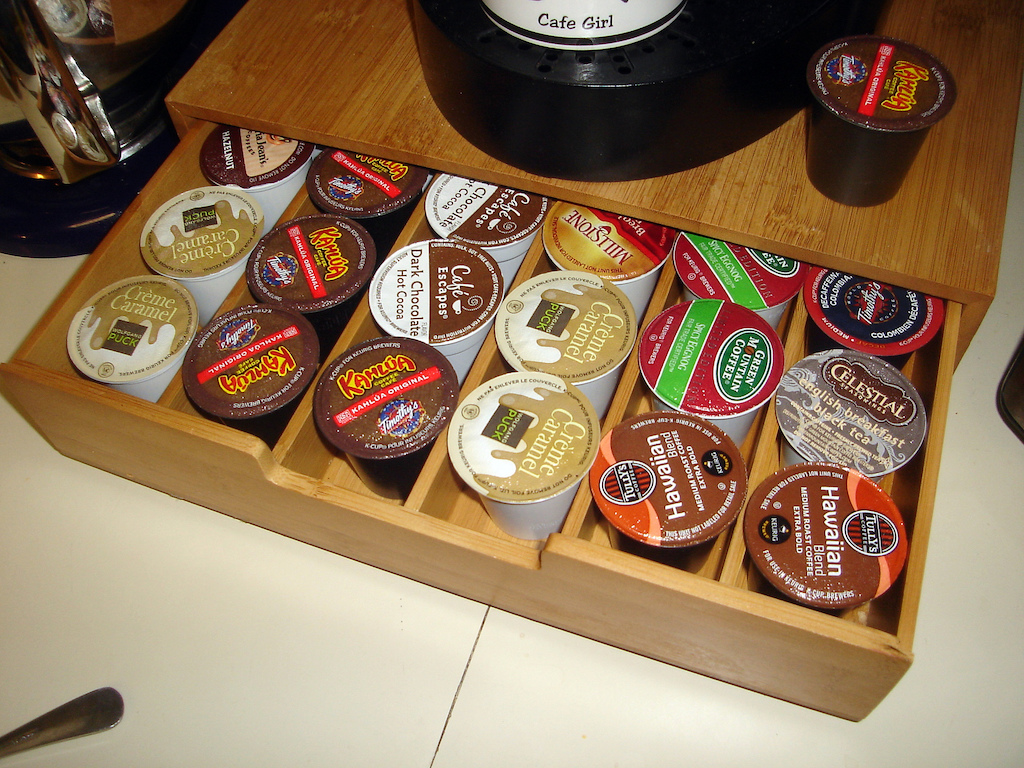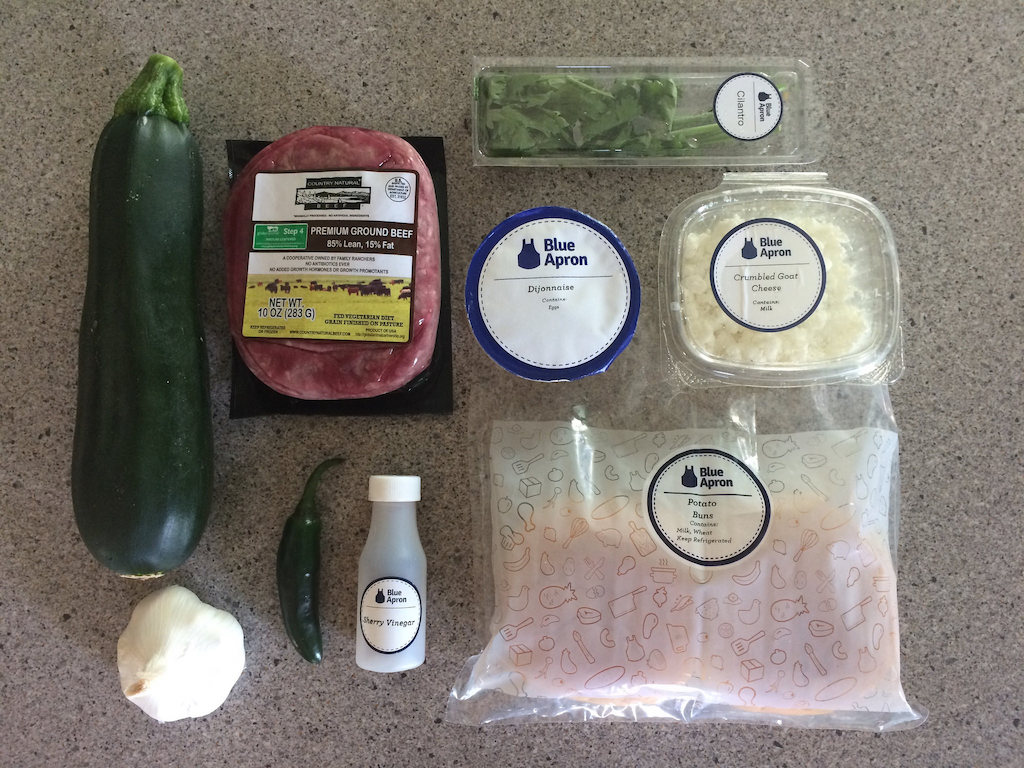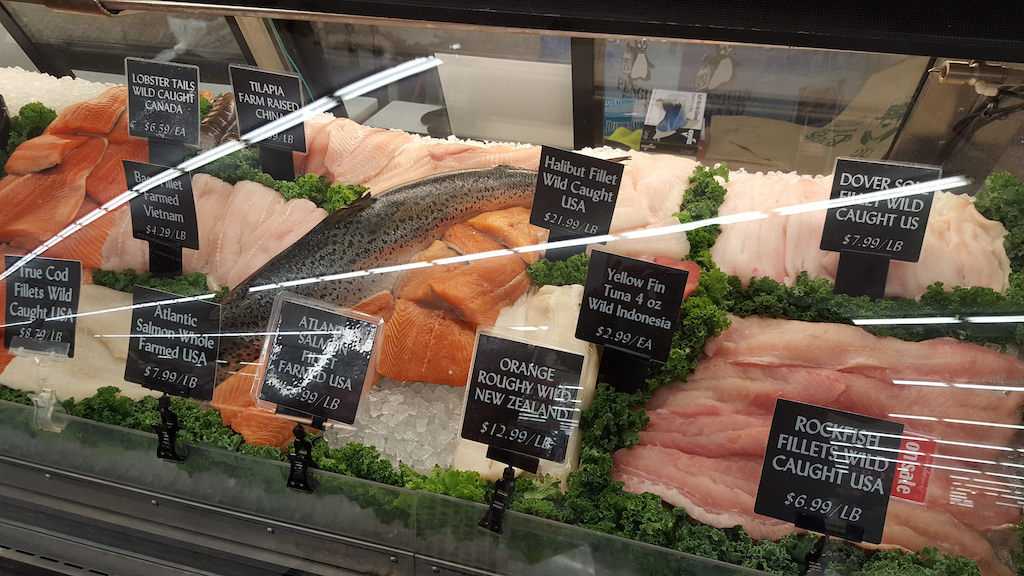The father-son duo behind a Long Island-based seafood processor pleaded guilty last week to mislabeling squid as octopus—the more expensive of the two cephalopods—and selling it to suppliers across the country. The scheme which Roy Tucillo Jr. and Roy Tucillo Sr. admitted to involved more than 113,000 pounds of giant squid, valued at $1.1 million. The news itself, announced by the Department of Justice (DOJ), is the latest example of the agency’s increased scrutiny of widepsread seafood fraud.
Beginning in 2011, the Tucillos repeatedly repackaged squid and sold it as octopus to grocery stores in Texas, Pennsylvania, Massachusetts, and New Jersey, according to the grand jury indictment filed against them last year. At one point, they went so far as to send a falsified invoice to a buyer who had requested proof of an order’s authenticity. In doing so, they committed both wire fraud and a Lacey Act violation, which prohibits false labeling of wildlife.
Octopus and squid share many anatomical similarities; both are eight-legged mollusks that squirt ink and lack shells. When used in food, both have a delicate, smooth texture, though octopus is reportedly more tender and less chewy. The markets for both species are also relatively tight, meaning that supplies are limited in spite of rising demand. That’s because both are at risk of overfishing, while more and more eaters across the world want to get in on that tasty tentacle action. (A handful of aquaculture operations are currently trying to industrialize the tricky matter of octopus farming—though a number of scientists have criticized the efforts.)
Between the two animals, octopus sees a lower annual catch, while commanding higher prices, per market research firm Tridge. In other words, there’s an obvious economic incentive to misrepresent one as the other. However, a lawyer for Roy Tucillo Jr. said that the Tucillos mislabeled their seafood not in an attempt to inflate revenue, but because the company often faced octopus supply shortages.
“The mislabeling constituted less than 3% of their business,” Richard Langone says. “What happened was, there became a shortage of octopus….And during the shortage period that’s when the mislabeling occurred.” (Roy Tucillo Sr.’s lawyer did not respond to a request for comment.)
A deeper dive into their company’s history finds that mislabeled squid might be just one element in a larger pattern of misdeeds. The Tucillos are currently facing a separate lawsuit by the Department of Labor that alleges they routinely denied overtime pay to workers, destroyed employee timecards, and deducted company expenses from paychecks—all in violation of the Fair Labor Standards Act. Last year, in a third case, the New York Attorney General ordered the two to pay over $120,000 in unpaid overtime to 10 employees.
Both labor abuse and mislabeling are ugly issues in the domestic seafood industry. Seafood processing in the U.S. is increasingly reliant on migrant and undocumented workers, who have reported various forms of exploitation including withheld wages, harrassment, and employers who require that they purchase their own equipment. Fraud is a similarly widespread problem, with some studies estimating that up to one-third of seafood marketed to eaters is labeled incorrectly. In 2014, President Obama announced a task force to address the issue overseen by various federal agencies including the DOJ—a move that would explain the uptick in industry oversight. In other words, the case of the Tucillos may just be just a drop in a much larger bucket.
According to DOJ, the maximum sentence for Tucillo Sr. and Tucillo Jr. is five years in prison and a fine of up to $250,000. Sentencing for both is scheduled for next May.
